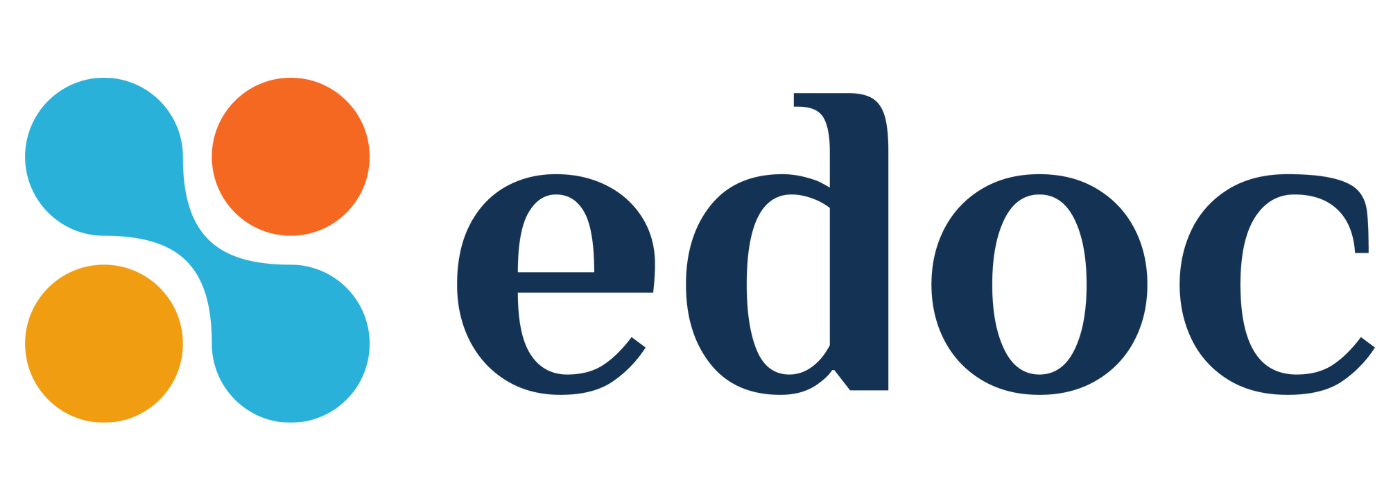Two Surprising Truths When Working for a Purpose-Driven Company
Very much like my Millennial peers, it’s important for me to work for a company that is making a positive impact on the world.
And, much like many other people today—regardless of age or generation—I value working for company that is purpose-driven.
Our Small Giants session this week reminded me of one of the first things I learned about Edoc, as a company: that we are a purpose-driven, principle-based company. (Edoc’s purpose is to transform the landscape of corporate American through innovative business services and authenticity.)
Since that time , I’ve learned two things about working for a company that is purpose-driven.
1. “Give Trust Away” and It Will Increase Tenfold.
How do you build a team culture where people proactively communicate and are loyal to one another, and loyal to the company itself?
The answer lies in an underlying pillar of our purpose at Edoc: authenticity. Day in and day out we are authentic: we know who we are and we embrace it.
Part of this principle is reflected in how we enter a relationship with our colleagues. We believe that our team members are trustworthy, and we operate accordingly—and that’s one of our principles. The same can be said for how we treat our relationships with our partners.
I’ve seen first-hand how if you “give away” this kind of trust to others first, you’ll be pleasantly surprised with the results because you’ll see trust back in return.
Three ways I’ve seen this happen at Edoc, across internal team members to external partners, include:
We have continued collaboration where we listen and value people’s opinions. Because all employees are seen as trustworthy, all employees are involved in company planning and in goal-setting. Listen in on an Edoc meeting with a partner, and you will hear genuine interest in what our partners have to say; after all, we’ve hired them for a reason! We trust them to have our best interest at heart in any recommendations or solutions provided, and the benefit is that they go the extra mile for us.
When mistakes occur or when deadlines are missed, we give people the benefit of the doubt. People are human and errors occur; we have a long-term view on success and we know mistakes will happen along the way. While we certainly don’t want to take on any unnecessary risk, this mindset is part of a trusting and dynamic relationship. I would also argue it’s also necessary in any innovative business environment.
We “default” to sharing information to keep people informed, a factor that’s valued across the company. Communication is a crucial way we foster trust—and communication is important to any company, whether the company is virtual or not. For example, we meet with all our partners over lunch about twice a year, and sometimes more often.
We share strategy, rationale behind decisions we are making or have made, and we share relevant and critical, high-level information with these partners. (Just because we are virtual doesn’t mean we don’t see the value in face-to-face, in-person interaction.) Trusting them with this kind of information helps people we depend on outside of our company to “have our back” and to make more strategic decisions alongside us.
I’ve learned that people (and partners) know when you trust them, and they appreciate when you give them the benefit of the doubt. It might be hard to define in some ways, but you know when you feel trusted. You feel more connected with your work, and with the outcome.
After all, the great majority of people want to uphold and validate the trust that colleagues have afforded them…and the great majority of people want to trust their colleagues, too.
2. An Open Books Philosophy Builds Stronger Teams
It might not be for every company, but at Edoc, we’re able to share financials so that people can see greater context around their role, and the impact of their role on the company’s profitability. It’s not that we just open the books at quarterly meetings and move on—the point is our culture isn’t one of secrecy. Instead, we know the truth about the bottom line and we’re able to make better decisions because of it
As a company that’s been open-book since day one, for Edoc, it’s help build a foundation of strong trust. Building trust with a 100 percent virtual team has its challenges, so having transparency as the company has grown has proven beneficial.
If you feel your company has built up a great deal of trust, examine how transparent you are with your financials—and I mean outside of just the executive leadership team. I’ve learned that using an open book management style is a highly effective way to build a great bond and sense of trust between colleagues.
Rather than thinking employees may use the numbers against you, consider the kind of people you can attract when you reward based off of merit.
Having an open book philosophy is one of the most effective ways to get people more involved and loyal to a (remote) company.
